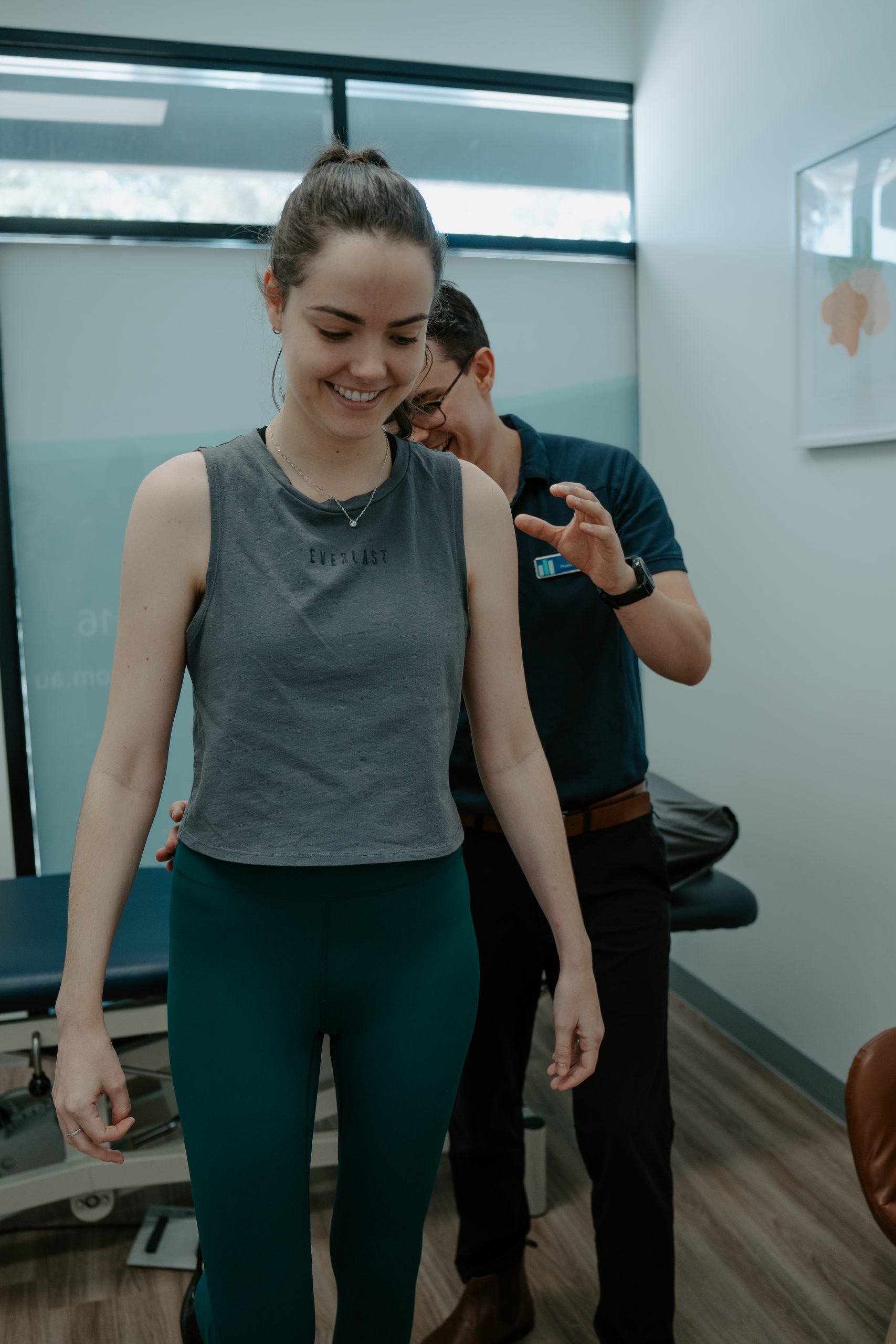Take back control from vertigo
We provide caring, high-quality physiotherapy to help people Prevent, Treat and Manage Injuries. Book your appointment today!
Are you frustrated because vertigo or dizziness is controlling your life? Do you feel like you can't do the things you love because dizziness is getting in the way? If so, you would benefit from vestibular physiotherapy.
Vestibular physiotherapy is a specialized form of physiotherapy that focuses on treating disorders of the inner ear and balance systems. These disorders can include vertigo, dizziness, and imbalance, which can greatly impact daily activities and quality of life.
A normal session of vestibular physiotherapy will involve a detailed interview where we will ask questions around your symptoms, when they started, how long they last for, and other factors that influence them. Then our Physiotherapists will perform a detailed assessment using specialised equipment such as vision denied goggles to identify the cause of your symptoms and design a rehabilitation program to help you reduce your symptoms.
Through a combination of exercises, techniques and manual therapy, vestibular physiotherapy aims to reduce symptoms, improve balance and coordination and help patients regain their independence to help you reach your goals.

Physiotherapy can help with a range of conditions such as:
Benign Positional Paroxysmal Vertigo (BPPV) occurs when the small otoconia (calcium carbonate crystals) dislodge from the otolith organs and fall into the semicircular canals. This will often be associated with acute, severe vertigo +/- nausea. Physiotherapy has been proven to effectively treat BPPV and can help to manage any continuing dizziness or symptoms following an episode.
Commonly occurring following viral infection, vestibular neuritis and vestibular labyrinthitis occurs when the vestibular portion of the 8th cranial nerve or the vestibular labyrinth are inflamed. Labyrinthitis is commonly associated with hearing loss. Physiotherapy intervention is critical at rehabilitation and preventing prolonged unilateral vestibular loss.
Meniere's disease is a rare disorder characterised by recurrent episodes of vertigo, associated tinnitus and hearing loss (usually low tone loss on audiogram). Often associated with Endolymphatic hydrops during disease progression however the causal link is unclear Physiotherapy can help to manage some symptoms associated with the disease progression.
Third window syndrome is simply an opening either between the inner ear structures and middle ear, or within the bony labyrinth. It usually occurs after a fall, head trauma, barotrauma, vigorous straining or following surgery.
Vestibular migraine (VM) is a central vertigo presentation characterised from a pattern of migraine headaches preceding vertigo episodes. Diagnosis is based on the ICHD diagnostic criteria. Symptoms are episodic and can present like all other vestibulopathy. A thorough subjective history is critical in the management of VM to minimise common triggers and to determine an individualised vestibular rehabilitation plan.
Commonly affecting persons between 30-50 years old, 3PD is characterised by constant, non-vertiginous dizziness or unsteadiness lasting 3 months or more. Often will cause vision related vertigo, increases in anxiety and hypersensitivity to movement. Patients respond well to vestibular rehabilitation and habituation.
Cervicogenic (CGD) dizziness is pain occurring from the neck with associated problems with sensory integration. This often will lead to dizziness and disequilibrium. CGD often will be associated with headaches. Through a thorough assessment the cause of a patients dizziness can be determined. Patients with CGH respond well to manual therapy and muscle retraining.
Want some help?
Book an appointment with our expert vestibular physiotherapists
